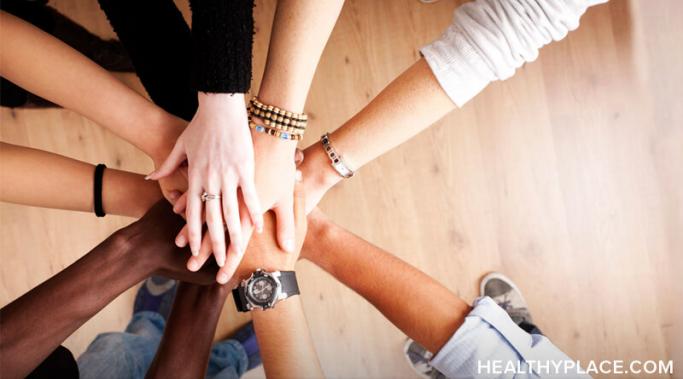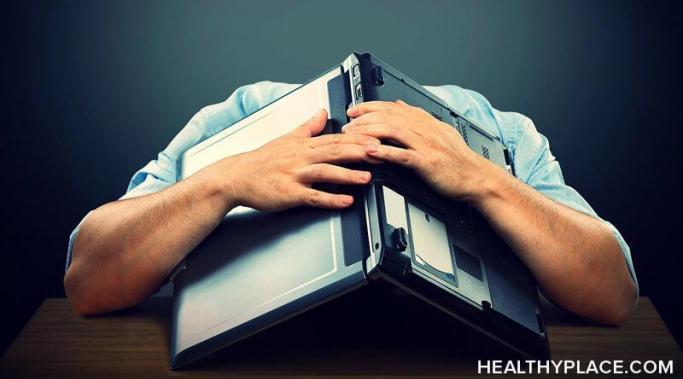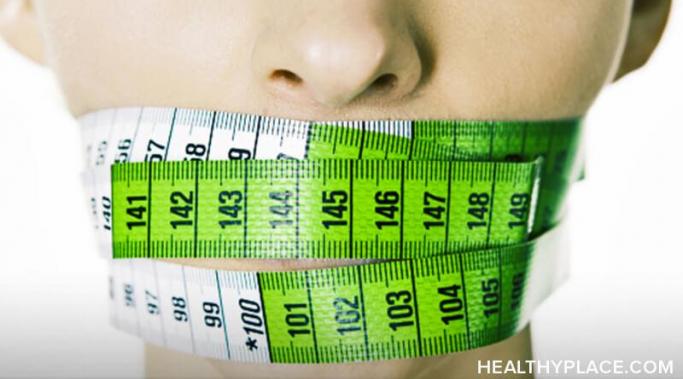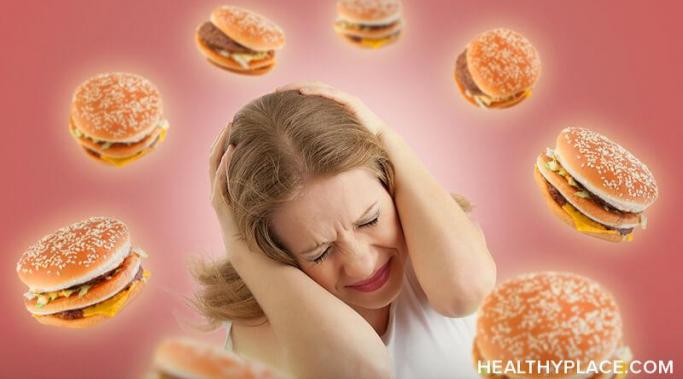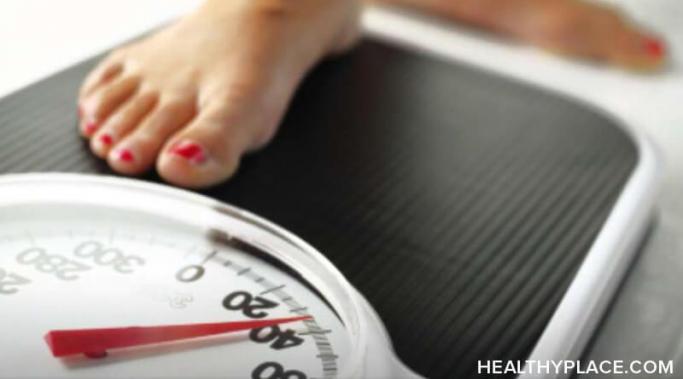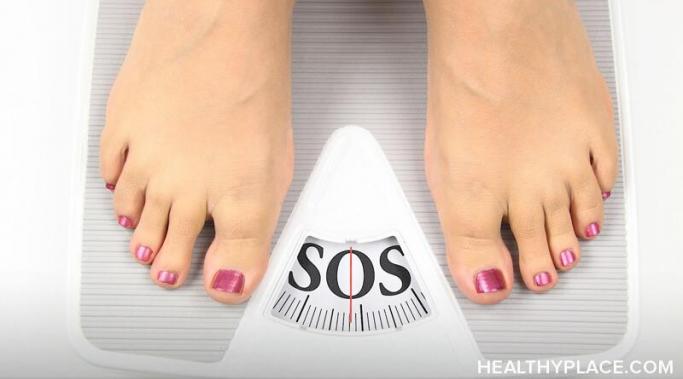Each winter, the National Eating Disorders Association (NEDA) sponsors an event called National Eating Disorders Awareness Week, and it's almost time for this annual outreach to make its return in 2019. This year's NEDA Week 2019 is from February 25 to March 3, and the overarching theme of the event is "Come as You Are." As a nationwide movement, NEDA Week 2019 aims to confront the stigma of eating disorders, enhance the visibility of its epidemic scale, and point toward access to recovery. So as it approaches, here is a basic rundown of what can be expected from the National Eating Disorders Awareness Week 2019.
Eating Disorders Recovery
Eating disorders and pornography addictions have more in common than you might realize at face value. But when you break down the complex nuances, deep-rooted motives, and unaddressed traumas that often drive the symptoms of these issues, both eating disorders and porn addictions share many identical threads. In fact, I know firsthand this connection exists because I am a survivor of anorexia, and my husband is a recovered user of porn. Our two healing stories are uniquely our own, but the similarities between his obstacles and mine are also just too pronounced to dismiss as coincidental. So what do eating disorders and pornography addictions have in common? In case you are wondering, here is my perspective on this enmeshed and intricate dynamic.
New Year's resolutions for eating disorder recovery can often feel like undue pressure to reach arbitrary benchmarks or perform to certain standards and expectations. But in some cases, New Year's resolutions can actually help with eating disorder recovery—if you are intentional and realistic about them.
The holiday season is one of the most ubiquitous times for traveling, but if you deal with a history of disordered eating, it can be difficult to maintain eating disorder (ED) recovery during holiday travels. Whether you visit long-distance family members or vacation on a ski slope with friends, this departure from a typical structured routine will often cause anxiety-induced triggers to surface. If you plan to be away from the familiar comforts and securities of home this season, here are some coping mechanisms you can practice in order to maintain ED recovery during holiday travels.
The prevalence of food shaming rituals around the holiday season presents an absurd contradiction. This time of year is undeniably food-centric, and there are both positive and negative implications for that. I will first address the positives—a shared meal is enriching, communal, intimate, and nostalgic. The experience is social, the atmosphere is filled with connection, and the memories created at the table become cherished family traditions. But in many cases, eating seasonal foods like mashed potatoes, biscuits, turkey, and stuffing can punctuate the mealtime with guilt, remorse, or insecurity. And that's when food shaming comments or behaviors materialize. This ritual is often distressing for people who face issues with body image and disordered eating, so I want to examine why food shaming intensifies around the holiday season and how to mitigate its adverse effects.
We need to debunk eating disorder myths because, despite their jarring prevalence in modern society, eating disorders are often misunderstood by people who have not experienced them firsthand. Because of this limited consideration and knowledge, common myths about eating disorders have emerged that need to be debunked.
Has the anxiety surrounding "fear foods" hindered your progress in eating disorder recovery? Do you feel motivated to embrace healing, but you just cannot seem to overcome the inner panic that clenches your stomach when faced with a plate of spaghetti, box of donuts, or slice of pizza? Are there categories of food you have labeled "safe" and other categories you're still terrified of biting into? If you can relate to any of these scenarios, then you've allowed fear foods to hinder your eating disorder recovery—and the quickest approach to neutralizing that fear is challenging it head-on.
The fear of weight restoration is one of the most frightening and challenging mental blocks to conquer in eating disorder (ED) recovery. When you are malnourished from starvation or binging and purging, the first step toward physical healing is to stabilize your weight in a healthier range. This can also be the scariest part of the whole eating disorder recovery process because gaining weight means surrendering that intense and desperate need for control. It means rejecting the illusion that being the "skinniest person in a room" equals success, worth or beauty. It means being forced to accept that you're more than a body, and you are lovable no matter what the scale reads. Without the buffer of weight manipulation to cower behind, you feel exposed in a way that is often uncomfortable and unfamiliar. But shedding this layer of defense is not just a life-saver—it's a turning point to freedom. Here are some practical interventions for conquering the fear of weight restoration in ED recovery.
I have a slew of insights about understanding eating disorders for family and friends, but I often don't have the language to communicate it all. I suspect that I'm not alone in this predicament. My hunch is most people with disordered eating issues struggle to attach words to their experience. Because eating disorders are complex illnesses that oppress the body, mind and spirit, they are painful to discuss. And their secretive, withdrawn nature can make people on the outside feel confused, wounded or even angered. They might perceive the eating disorder sufferer's actions as callous, apathetic, disingenuous and selfish. But while eating disorders do perpetuate this kind of behavior, it's not indicative of the person's true character. Underneath that hard, stony facade is someone desperate to feel accepted and validated. So I need understanding--understanding about eating disorders from family and friends—and if you can relate, I encourage you to use these talking points with your loved ones too.
Your eating disorder has its own personality. In fact, if you have spent any length of time under the possessive, domineering influence of an eating disorder, you know the illness can turn you into a different person altogether. You have probably felt the sensation of watching your actions as though from a distance, ashamed at the erratic behavior, yet helpless to regain control. You have likely experienced the reckless thoughts and wild emotions that breed impulsive choices and abrupt reactions. You can detect when the eating disorder hijacks your brain and all of a sudden, you are operating from a place of anxiety and fear. You are no longer, well, you. Your eating disorder personality has taken over.
